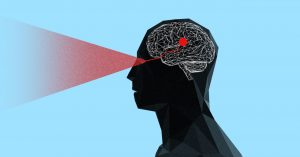From the very beginning, technology has attempted to predict the rhythms of our private and collective desires. When music streaming services rocketed into public favor at the tail end of the new millennium, they implemented “discovery” options that, in effect, proposed songs based on what a user listened to or liked or shared with a friend. For the longest time, SoundCloud was, I felt, the only service that had perfected this sort of digital prophesying. At its peak, the music-sharing platform operates as an essential incubator of experimental sounds and genres. It introduced me to artists as disparate as Kaytranada (a thumping blend of hip-hop, house, and R&B), MNEK (black British soul-pop), and Lil Uzi Vert (emo-rap). It understood that community was the most important element to discovery.
I’ve since spent more time exploring other streaming forecast tools, like Spotify’s Discover Weekly, which is either strangely prescient (Yes, I would love to listen to Kelsey Lu’s “Due West”) or strangely off the mark (No, I don’t want to listen to “Rainbowland” by Miley Cyrus), but one thing I’ve tried to keep in mind for WIRED’s Fall Tracks list is that same sense of uncovering. I didn’t want to worry myself with the familiar—I was more interested in what might have flown under the radar.
Fall music can be less predictable than summer. Where the summer anthem has remained an inflexible proposition—fossilized into the nation’s shared memory during a period of intense languor, defined mostly by an appetite for maximalism—fall is best described as a mood. It’s atmospheric and intimate, a moment that carries all manner of feelings in a hissing orange flame burning from the fireplace. But even within the mood, there’s a fantastic bounty of range.
We live in a time marked by nonstop output. In fact, Gen Z artists like Cuco and Normani are crafting some of the most sneakily unradical music of the moment—melodies that sit with us, that flirt less with genre-mixing and more with supplying realist portraits of a young person’s life. The music of the season carries some of that sentiment too, while innovating in other respective aspects. Below are the seven tracks you must add to your fall playlist.
FKA Twigs featuring Future, ‘Holy Terrain’
None of the pieces of “Holy Terrain” should fit together like they do. Its haunting sound, courtesy of indie-rock savant Jack Antonoff (of the bands Bleachers and Fun) and EDM producer Skrillex. Future’s woozy Auto-Tuned trap realism. The ghostly specter of FKA Twigs’ divine soprano, so beautifully agile in its ability to glide across the dimly-lit beat. She all but possesses the track, which was released as the first single from her imminent sophomore album, Magdalene. “Do you still think I’m beautiful when you light me in flames,” she sings. It’s a song about love, about the tension between the light and darkness of that action, of ultimately knowing what one is deserving of and wrestling with all that is held in between.
Danny Brown, ‘Change Up’
The opening track on rapper Danny Brown’s fifth major-label release, uknowhatimsayin¿, sounds like a Quentin Tarantino film feels: controlled and focused but prone to leave the listener a little woozy. The setting is Detroit with an unmistakable Wild West vibe. “They thought I was gone, back from the grave,” Brown raps, all cowboy spirit. The song is one of the album’s most bracing gulps of self-revelation—which includes streaks of brilliance from collaborators Paul White, Flying Lotus, JPEGMAFIA, Run the Jewels, and Q-Tip, who executive produced the LP—and works as a kind of tonic in a time of social crisis.
Thaiboy Digital, ‘IDGAF’
Pioneered by acts like D4L, Soulja Boy, and Dem Franchize Boyz, it’s hard not to hear the influences of Atlanta’s mid-aughts snap scene on the first listen of “IDGAF.” But the sum of the track is much bigger than any single locale, city, country, or continent. Propelled by his signature nursery rhyme lyricism, Thaiboy Digital owes the song’s deceptive simplicity to his globe-expanding influences: He was born and raised in Thailand where he lived until he was eight, and later moved to Sweden, where he fell in with a music collective called Drain Gang. It was there that he was exposed to the pomp and posture of American hip-hop. “IDGAF” works because it’s a clear snapshot of our increasingly globalized world: It doesn’t discriminate. It pulls from everywhere. It sounds like the future.
DaBaby featuring Nicki Minaj, ‘iPHONE’
The subject matter of “iPHONE” is its least impressive feat. It involves frivolous and modern matters of the heart—”I’m tryna stay up off my iPhone/ Told my b**** ‘I love you,’ that was just a typo” is one sample line—but its real draw is the synergy between DaBaby, the 28-year-old rapper from North Carolina who’s turned into one of the year’s most magnetic talents, and Nicki Minaj, who plays the role of veteran. Featured on KIRK, DaBaby’s sophomore album and second major release this year, and having charted on Billboard’s Hot 100, the genius of “iPHONE” is in its skeletal elements: Minaj’s lyrical acrobatics (she makes it sound so easy) clashing against DaBaby’s playful turbo-speed rap minimalism. The result is a kind of he-said-she-said exposition about modern relationships. “iPHONE” is just plain fun.
Brittany Howard, ‘Baby’
There are a handful of standout tracks on Brittany Howard’s standout solo debut, Jaime, but none quite as mood-setting, heart-pinching, or straight-up soul-moving as “Baby.” As the frontwoman for the Alabama Shakes, Howard is no stranger to unbuttoned emotion—her voice is a force of nature—but “Baby” allows for a fascinating study of her range as a performer: It covers the high, low, and middle ground of her signature blues-funk warble. The song builds slowly before its reaches its peaks and all crashes down. “Baby” hits you at your core.
Angel Olsen, ‘New Love Cassette’
In an interview with Pitchfork, the St. Louis singer-songwriter said “New Love Cassette” was about her trying to “love as openly as possible,” something she’d rarely done before. Backed by a 12-piece string section, Olsen contemplates deep affection in a kind of whisper-mumble croon. But where her voice barely registers above a shout, everything else on the song feels completely cinematic. It’s the rare song that is both stadium-filling and deeply intimate. It’s all atmosphere. “Some people truly are just fucking human vacuums,” she said in the same interview. “And that song is like: Isn’t it so nice when you meet someone who isn’t?”
Kindness featuring Seinabo Sey, ‘Lost Without’
The genius on display here is of a singular skill: London export Kindness has perhaps released the album of the year (it’s certainly in my Top 3) and “Lost Without,” a horn-backed, funk-soul hybrid, is about transcendence and self-belief (vocals provided by Swedish singer Seinabo Sey come straight from heaven). Its themes are universal, but the song doesn’t busy itself with political statements or the frictions of the present moment. The heart of “Lost Without” is about the most human feeling of all: It concerns the fact of being, and everything that comes with it—doubt and the experience of overcoming doubt, the pursuit of something better, love, fear, and what it means to trust in oneself. “Don’t be afraid to fall,” Sey sings on the hook. I haven’t heard a better song all year.



